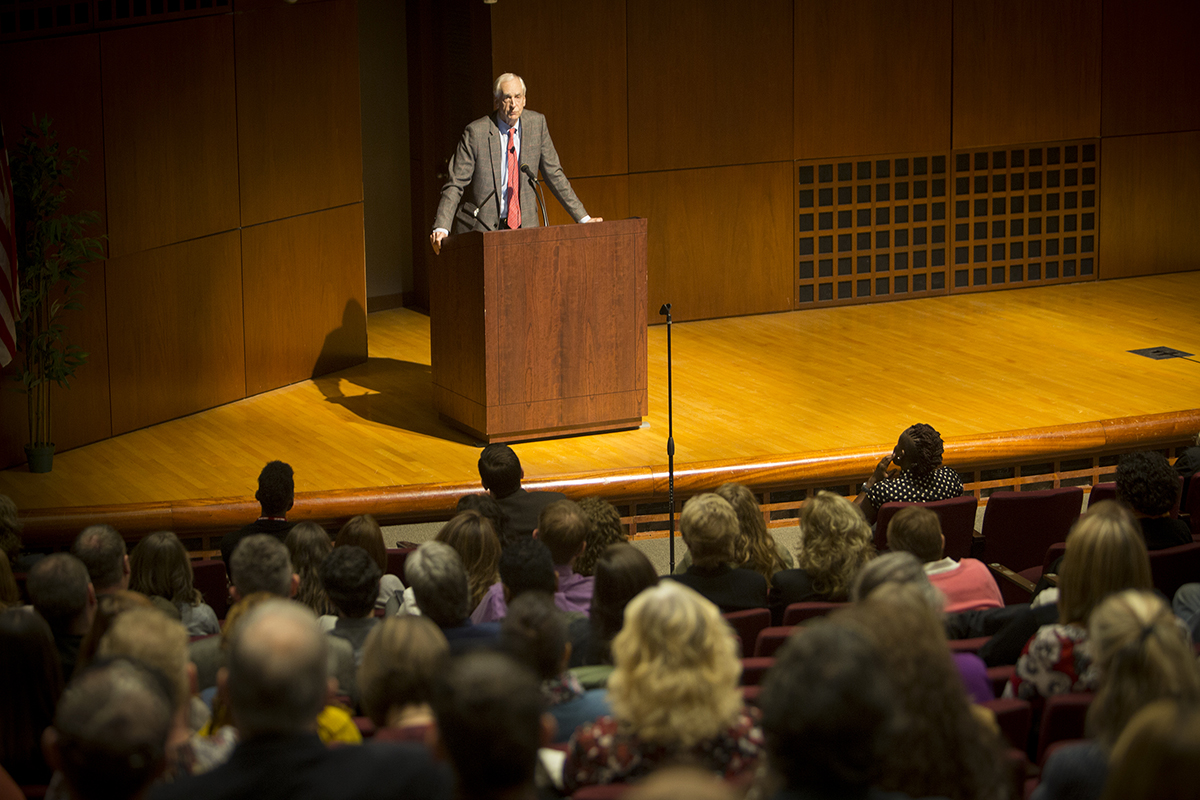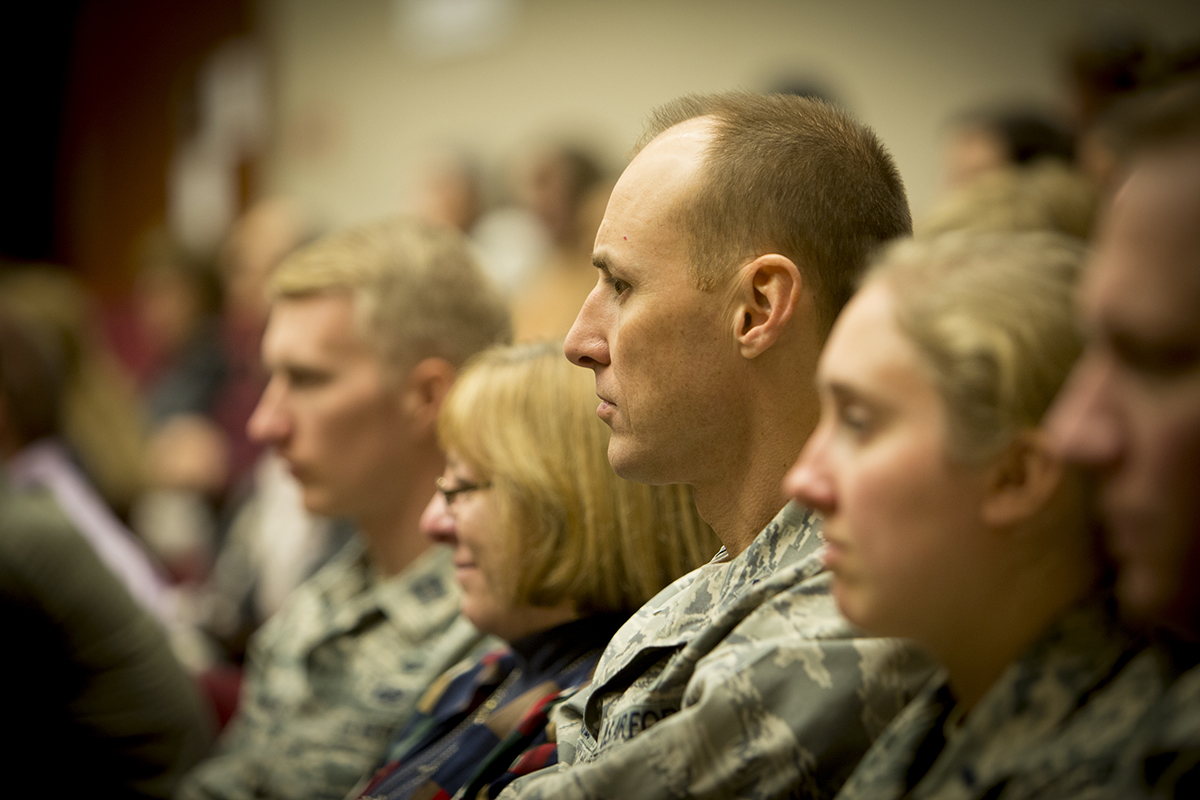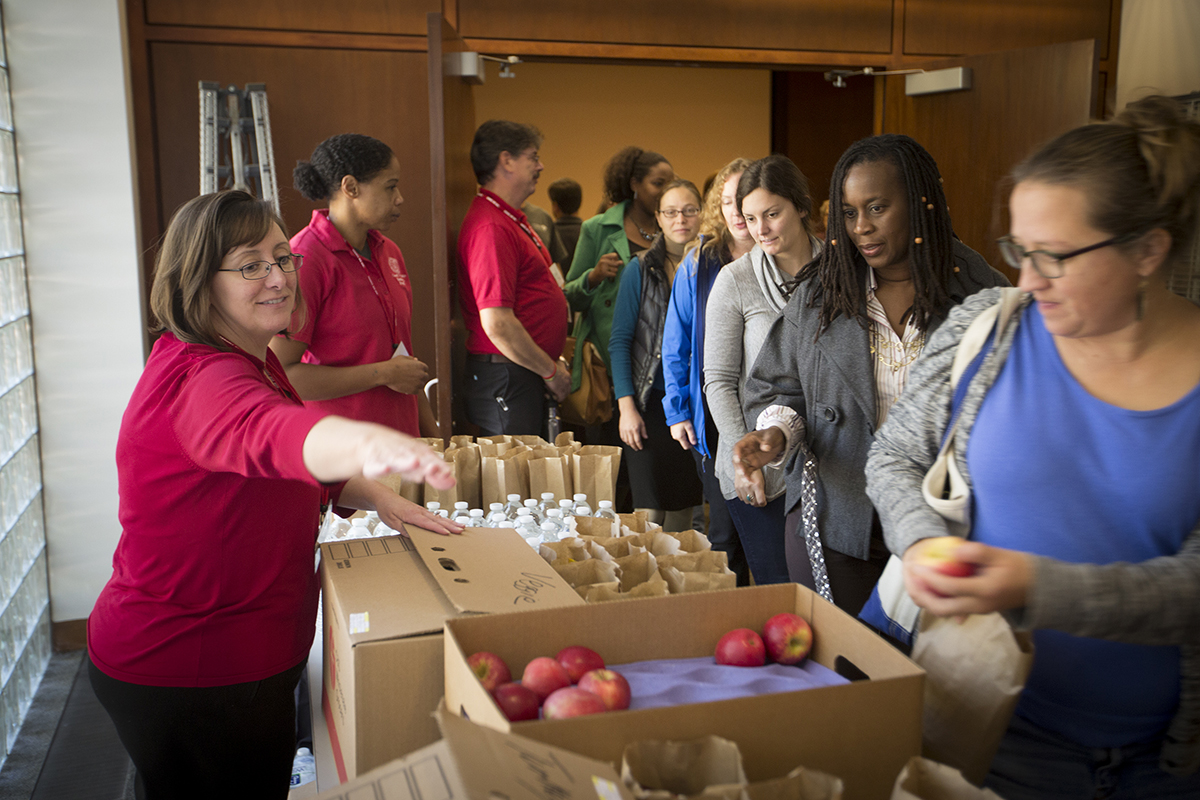Staff is central to 'One Cornell,' Rawlings says
By Nancy Doolittle

“Get involved.”
From the opening slideshow featuring Cornell staff at work, through introductory remarks by Ulysses Smith ’14, chair of the Employee Assembly, who encouraged staff to “be bold” by using innovation and ingenuity to take the initiative to “do things differently,” to Interim President Hunter Rawlings’ focus on “One Cornell” – “get involved” was central to the 10th annual President’s Address to Staff, Oct. 11.
“You are part of a very remarkable institution … with an enormous footprint and an enormous impact,” Rawlings told the audience of approximately 350 in Kennedy Hall, with about another 350 watching online.
Rawlings, who for five years served as president of the Association of American Universities, noted Cornell is one of a few whose version of shared governance extends beyond the faculty to include staff and student constituent groups and board of trustees representation.
“We want to have everyone involved,” he said, noting the perspectives of Cornell’s shared governance groups provide “good ideas, new ideas, reactions to things that we have done and that others have done.” Rawlings supports campus activism, he said in response to a question, when it results in change and reform.
He urged audience members to make their voices heard by completing the Employee Survey distributed to all staff last week. The senior leadership takes the results of the survey seriously, he said, and uses those results “to identify areas of concern, facilitate campuswide discussions of those concerns and explore solutions.”

Rawlings described how campus involvement and collaboration are critical to “One Cornell,” an initiative he is promoting that has three components: re-examining the undergraduate curriculum universitywide; fostering deeper collaboration and unity across racial and ethnic divides; and tapping the power of the Ithaca campus and the campuses of Weill Cornell Medicine and Cornell Tech in New York City – “so that we can take advantage of each other’s strengths, collaborate in new ways and create synergies that go beyond anything we have achieved in the past,” Rawlings said.
Staff members play an integral role in the latter two components, and this semester, for the first time, the new President’s Award for Innovation in Diversity and Inclusion will recognize the accomplishments of a staff member, manager or supervisor, Rawlings said.
“Staff members already have a great deal of experience with collaboration,” Rawlings said, noting about 600 staff have served on about 85 lean process improvement teams on the Ithaca campus and in New York City. Their efforts have improved workflow and made it possible to do more work that adds value, providing nearly $5.4 million in benefits to the university, he said.

Staff collaborations have paid off in other ways as well, he said, noting Cornell Dining ranked third nationally in the “Best Campus Food” category in the Princeton Review this summer. Rawlings also noted that the Geneva campus and Cooperative Extension provide great examples of collaboration in their fulfillment of Cornell’s land-grant mission.
And staff have collaborated across colleges through their participation in the United Way campaign, in the Cornell Elves and Backpack programs, and in the Emergency CARE Fund, which helps faculty and staff members cope with unexpected emergencies.
“This is a great university largely because of what you contribute – every day, but also when the spirit moves you to do something generous for someone else. It’s a big deal,” Rawlings said. “It’s important that we see it as part of our mission to help those who are less fortunate.”
He added, “It is wonderful to be back at Cornell and see so many friends and be able to collaborate with faculty, staff and students at one of the world’s really, really great universities.”
Media Contact
Get Cornell news delivered right to your inbox.
Subscribe